I know, I know. The title makes no sense, and no doubt comes across as silly. But let me assure you, it is genuine. I simply did not know how to phrase the thing I hope to express, without sticking the entire essay into the title. So bear with me as I try to explain.
To begin with, let me get this out of the way: I am not a good photographer. And no, I am not being self-deprecating, suffering from imposter-syndrome, or any of those things. I have a healthy amount of self esteem and in that vein am fortunate enough to be aware-yet-accepting of my shortcomings. So I merely mention this matter of factly, you understand: I am not a good photographer. In truth, I am kind of terrible – especially when you consider how long I have been taking pictures and how passionate I am about doing so. Alas, my technical acumen has always lagged behind my enthusiasm. It took me years to properly understand what aperture does. Then years again to grasp the effects of factors such as focal length, vantage point, and camera tilt, on the way ‘stuff looks in photos’. My exposure and white balance are still all over the place. And don’t even speak to me about light… I only truly began to ‘get’ that side of things quite recently. Considering that photography is literally all about light, such an admission from a lifelong photographer is – to put it gently – concerning.
But perhaps more baffling is that despite this, throughout most of my adult life I have managed to earn part of my income taking photos. I have done paid work in editorial photography, wedding and event photography, portraiture, even product photography. The other day I was online shopping for a certain cycling-related item, and was startled to come across some of my own photos on several retailers’ websites. It had slipped my mind that I took those photos a decade ago and sold them to the product manufacturer. I can only assume they were pleased with my work, if they still use and distribute it all these years later.
How is that compatible with the confession in the preceding paragraph? Well. I have come to think of it in terms of the Adlerian concept of organ inferiority and its compensation. The idea goes something like this: When an organ in the human body is weak or functions poorly, other organs compensate by working harder so that the system can function overall. Likewise, when a person seeks to achieve a desired goal but lacks certain abilities needed for that, they can compensate with other skills. An example: As a young girl I longed to sing in the school choir, but was completely tone deaf. My mother, sympathetic to my plight, suggested that perhaps my acting skills could compensate for my lack of musical ability. If she sang the songs, could I imitate her? We tried it, then spent weeks practicing – until I could perform every song in the choir’s repertoire… albeit in my mother’s voice, complete with her mannerisms! The audition was interesting, to say the least. But I got in, and my dream of singing in the glorious Victory Day Concert came true. Over three decades later, I still cannot carry a tune to save my life. But I can imitate a human voice singing a specific song, which in turn enables me to sing.
While the technical side of photography has never been my strong point, I compensate for this with other attributes. Perhaps the most valuable one, which I have only come to appreciate in recent years, is that I have endless – quite clear and specific – ideas of what I want to photograph. It pains me to think how many photographers I know are technically brilliant, yet genuinely suffer from {perceived} lack of subject-matter. This is a problem I have literally never experienced. At all times, there exists a slideshow extravaganza of imagery in my head which I can’t wait to capture on camera, time and weather and situation permitting. And in a more spontaneous sense, as I move through the world in everyday life I automatically see my surroundings as photographable scenes.
Walking across the city centre for instance, my inner narrative goes something like this:
La-la-la, bus-stop, fountain, shadow, tree… rusty gate… la-la-la… Look, a girl in a fur coat feeding pigeons! Quick, get her from down low, so that the sinister Victorian building looms over them… And oh, wouldn’t it be great if she turns in profile so that it looks as if her and the pigeon are chatting?… Okay, eyes on the prize. Down on the ground… Oh who cares about my ‘good coat’… camera to my eye… Wait for it… Bang! Quick, stop down just in case. Bang-bang! Yay, I got the pigeon girl… Oh wait, were my settings okay? Is she backlit??..
Is this the internal monologue of a good photographer? Far from it. I shoot first, think later. I am careless and sloppy. But I ‘see’ the shot. And when I do, I am quick to react. Those two things alone can go a long way toward compensating for lack of technical due-diligence. The number of times stunned friends have witnessed me drop to the pavement without prior explanation or warning, has become a sort of running joke… perhaps all the more so because it usually isn’t obvious what on earth I am pointing my camera at that had to be photographed so urgently!
This impulsive and image-driven approach serves me well at times. But quite often it also undermines me, and breaks my heart. If only I had stopped to think. If only I was not quite so excited. If only I had taken an actual light reading rather than ‘intuiting’ it! Then the Pigeon Girl would not have been underexposed. Tragic really. But then again, I do not allow such trivialities to discourage me – which is perhaps another attribute that works in my favour. While a sensible person might have long given up on photography when faced so repeatedly with their enduring ineptitudes {or at least given up on using manual settings and gear!}, I am not so easily thwarted from doing something I love.
In more controlled situations, some of my tangible skills come into play as well. Coming from a painterly background, I have an inherent feel for colour, movement, visual balance, and overall composition. I have a knack for building narrative, tension, and drama. When photographing people I am able to make them feel comfortable, and they react to the camera accordingly. Can these strengths really disguise, or compensate for, poor technical skill? In my experience… yes, at least to some extent. When I did wedding and event photography, I always found it interesting that the clients tended to choose images which were the most visually compelling and narrative-driven, rather than ‘good’ in a technical sense. I have also been chosen for projects over technically superior photographers on the basis of my decidedly imperfect but evocative portfolio. One client even told me quite bluntly: ‘You are not a good photographer. But you have a good eye, and we can work with that.’ Fair enough!
If we are asking the question of whether creativity can compensate for lacking technical skill, it is only fair that we also ask the opposite: Can technical skills compensate for lacking creativity? The answer to which is, in my opinion, likewise yes. I have a friend, for instance, who {and he would be the first to admit this} cannot compose a shot for love or money. And not in a deliberate, critical-theory-driven way, where the seeming lack of composition is in fact quite studied and the point of the image, if you see what I mean – but genuinely. His pictures seem to start and end at random and have no focal point for the eye to rest on, things overlap in distracting ways, branches and telephone poles stick out of people’s heads, limbs and parts of faces are cut off. But the technical perfection of the photos is breathtaking and the use of lighting is glorious – so much so, that these aspects of the image captivate the viewer and become a sort of narrative in their own right.
Depending on context, I genuinely believe that a photographer can be bad – even terrifically bad – at certain aspects of the photographic process, and yet manage to overcompensate in other areas so much so as to be a Good Photographer overall. It’s a bit like, when we find a person attractive, yet upon examining their individual features it isn’t clear where that attractiveness comes from. Sometimes a construct like being ‘attractive’ or ‘good at something’ can be more than the sum of its parts. There is a certain je ne sais quois-ness involved and to me that is more exciting, than if these things were perfectly formulaic.
Why do I muse on all this, and feel compelled to share it here? Well, I suppose that – like many of those reading this, I suspect – I find myself at a crossroads where I am thinking how to move forward with my photography. And in conversations about this with others, I find that all too often we tend to focus on our shortcomings, by way of explanation as to why we feel frustrated, or stuck, or in some other way not entirely happy with our photography. And while it is certainly important to acknowledge areas in need of development, I am coming to the realisation that it can also be demoralising and counterproductive to focus solely on our inadequacies. And so in order to move forward it is perhaps equally important to identify our strengths and consider how we might harness those strengths to their full potential.
Of course, as adults – while admitting our shortcomings feels socially acceptable, noticing and acknowledging the things we are good at feels a tad weird. And lest you misunderstand my intent, it is certainly not to say ‘Look ha-ha, I am creative and so ultimately needn’t bother myself with all that pesky technical stuff!’ I do not congratulate myself on my lagging technical skills, but insistently strive for improvement in this regard – and rejoice at every tiny bit of progress precisely because it does not come easily. At the same time, I am grateful that even as I continue to learn and grow in these areas, there are still opportunities to be a Good Photographer – by making the most of my strengths.
___
NOTES
Header image courtesy of Gary McLaughlin, taken with a Leica M9 and a Voigtlander Color Skopar 35mm lens.
Further reading on ‘overcompensation’ and related concepts for anyone interested: The Individual Psychology of Alfred Adler, edited by Ansbacher & Ansbacher.
Ailbíona McLochlainn is a photographer, knitwear designer, and recovering academic, based in Ireland. For additional information and lots of pictures to look at, visit www.ailbiona.com
Share this post:
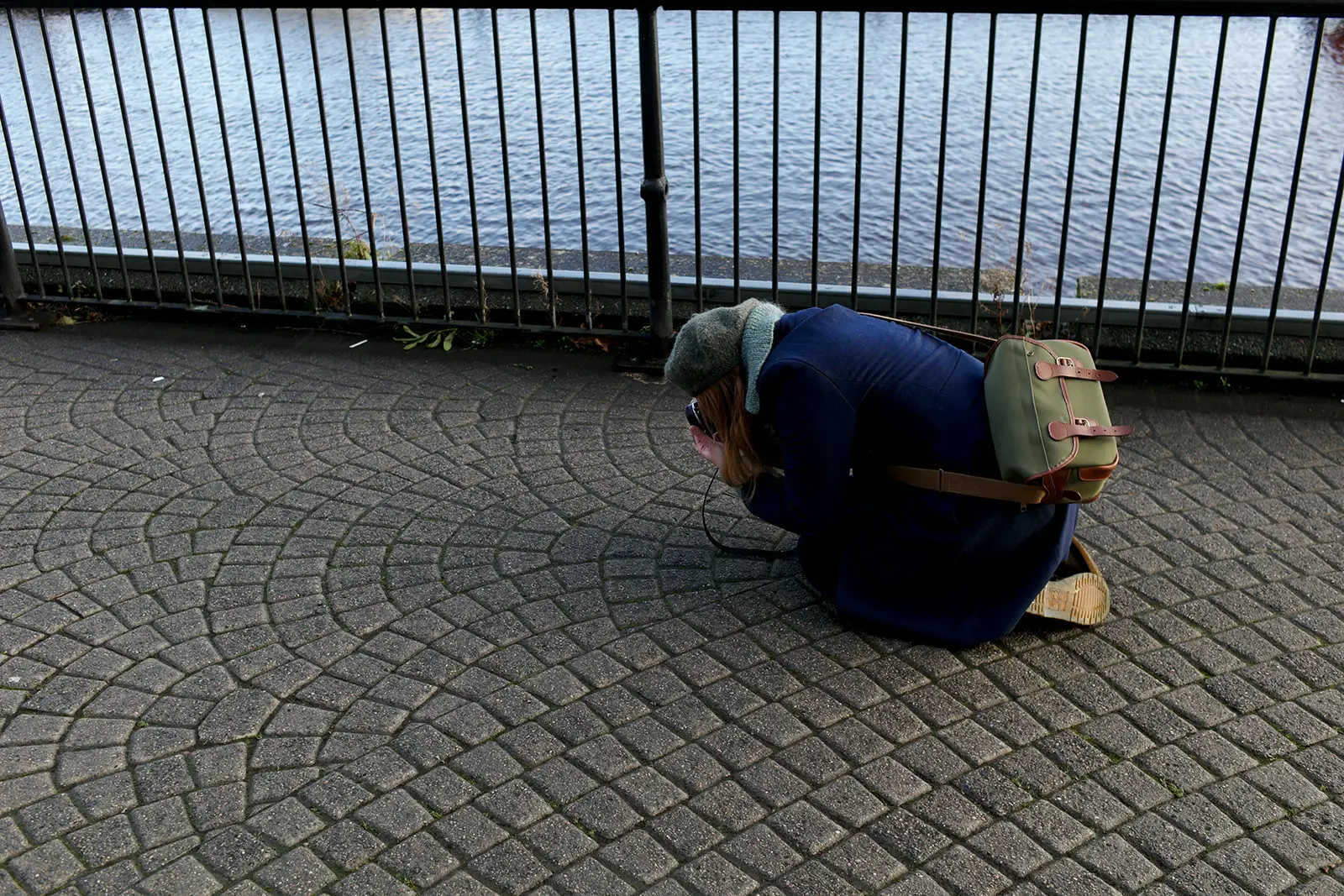
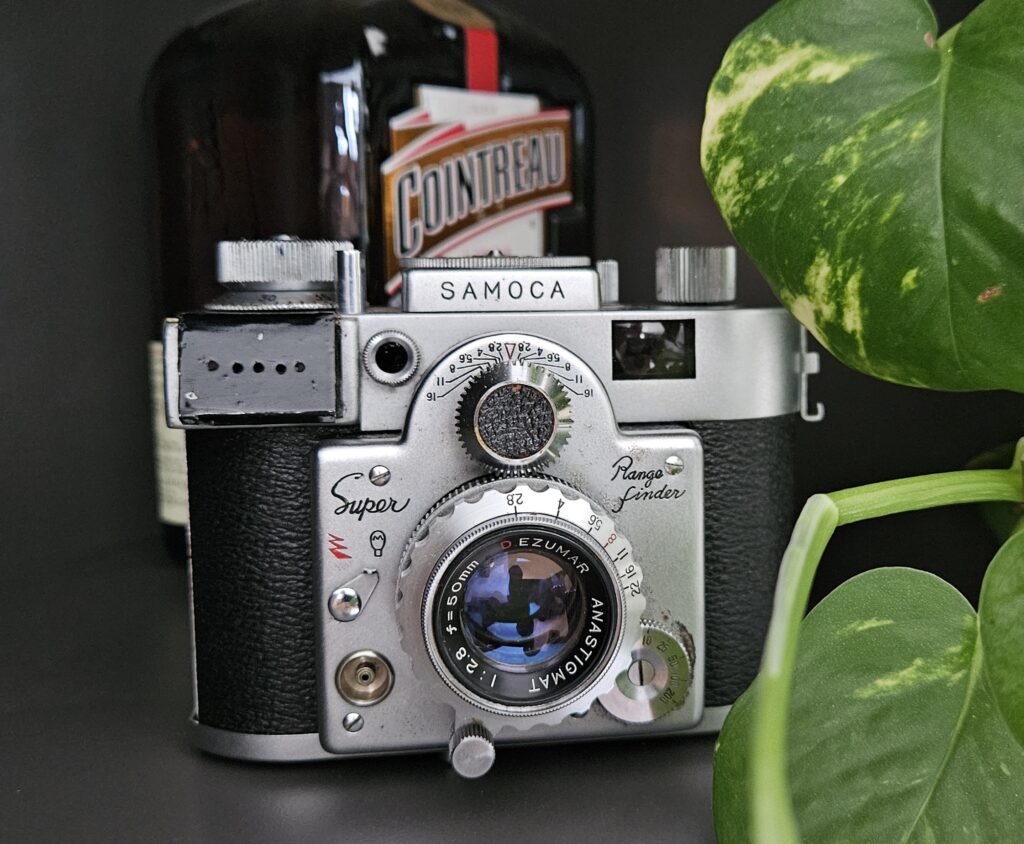
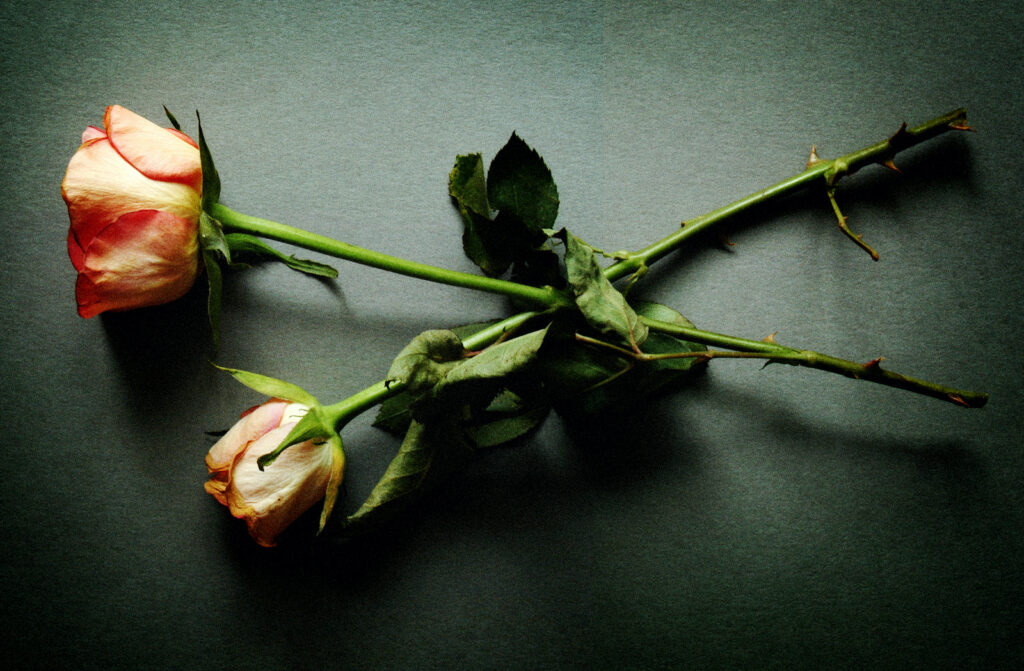
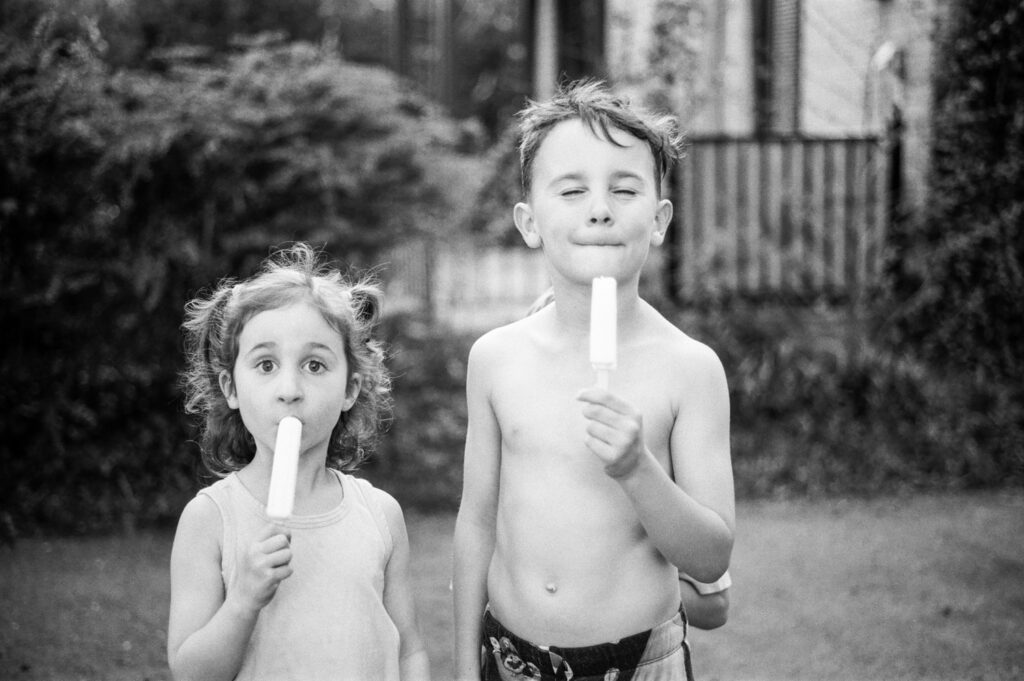
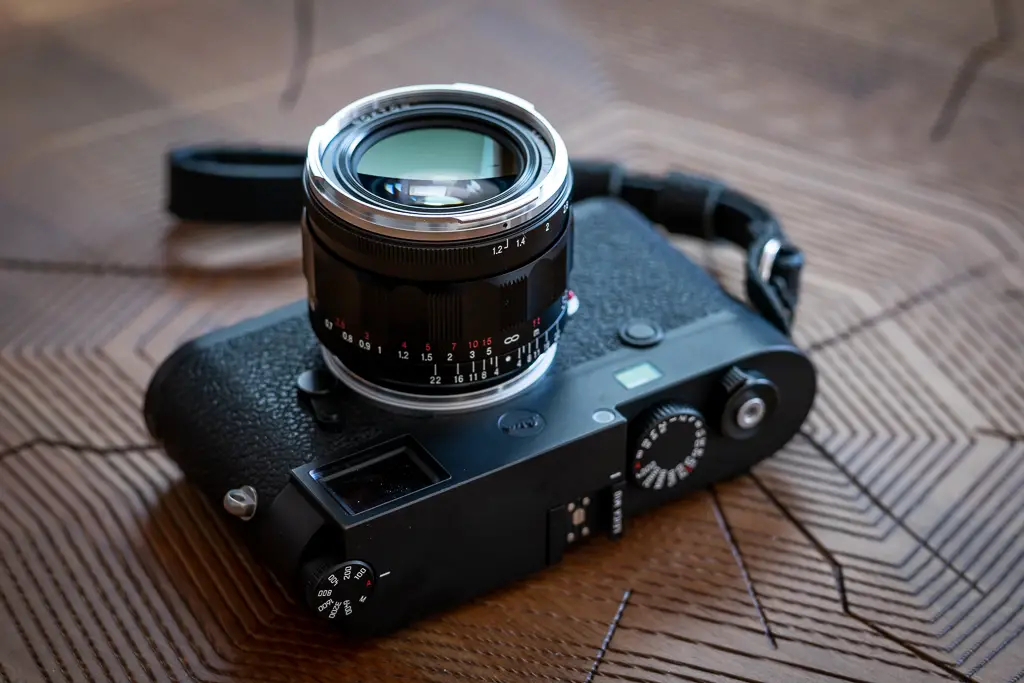




Comments
Thorsten Wulff on You Don’t Have to Be a Good Photographer to Be a Good Photographer – By Ailbíona McLochlainn
Comment posted: 09/02/2022
Comment posted: 09/02/2022
Comment posted: 09/02/2022
Mark Kayuda on You Don’t Have to Be a Good Photographer to Be a Good Photographer – By Ailbíona McLochlainn
Comment posted: 09/02/2022
P.S. Почему-то кажется, что Вы выросли в русскоязычной стране.
Comment posted: 09/02/2022
Comment posted: 09/02/2022
Keith on You Don’t Have to Be a Good Photographer to Be a Good Photographer – By Ailbíona McLochlainn
Comment posted: 09/02/2022
I really enjoyed this article Ailbiona. It made me think about a lot of things and so was most definitely , in my opinion, successful! Thanks for posting.
Comment posted: 09/02/2022
Alex on You Don’t Have to Be a Good Photographer to Be a Good Photographer – By Ailbíona McLochlainn
Comment posted: 09/02/2022
Comment posted: 09/02/2022
Bob Janes on You Don’t Have to Be a Good Photographer to Be a Good Photographer – By Ailbíona McLochlainn
Comment posted: 09/02/2022
For me the things that make a good photograph are subject, composition, light and timing - it sounds like you have those covered. The technical elements may be able to scupper a photograph, but in my experience they rarely make a good photo by themselves.
Comment posted: 09/02/2022
Comment posted: 09/02/2022
Comment posted: 09/02/2022
Comment posted: 09/02/2022
Comment posted: 09/02/2022
Comment posted: 09/02/2022
Khürt Williams on You Don’t Have to Be a Good Photographer to Be a Good Photographer – By Ailbíona McLochlainn
Comment posted: 09/02/2022
Cheer!
Comment posted: 09/02/2022
Alan on You Don’t Have to Be a Good Photographer to Be a Good Photographer – By Ailbíona McLochlainn
Comment posted: 10/02/2022
Khaled_IM on You Don’t Have to Be a Good Photographer to Be a Good Photographer – By Ailbíona McLochlainn
Comment posted: 11/02/2022
Comment posted: 11/02/2022
David Hume on You Don’t Have to Be a Good Photographer to Be a Good Photographer – By Ailbíona McLochlainn
Comment posted: 18/02/2022
K.M. on You Don’t Have to Be a Good Photographer to Be a Good Photographer – By Ailbíona McLochlainn
Comment posted: 20/02/2022
Comment posted: 20/02/2022
Comment posted: 20/02/2022
Mark Photography on You Don’t Have to Be a Good Photographer to Be a Good Photographer – By Ailbíona McLochlainn
Comment posted: 07/06/2022